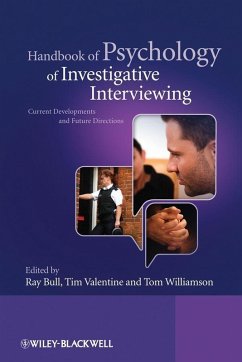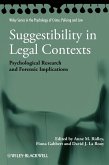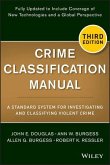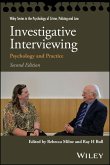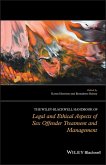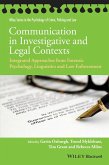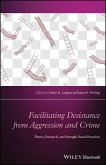Handbook of Psychology of Investigative Interviewing (eBook, PDF)
Current Developments and Future Directions
Redaktion: Bull, Ray; Williamson, Tom; Valentine, Tim
51,99 €
51,99 €
inkl. MwSt.
Sofort per Download lieferbar

0 °P sammeln
51,99 €
Als Download kaufen

51,99 €
inkl. MwSt.
Sofort per Download lieferbar

0 °P sammeln
Jetzt verschenken
Alle Infos zum eBook verschenken
51,99 €
inkl. MwSt.
Sofort per Download lieferbar
Alle Infos zum eBook verschenken

0 °P sammeln
Handbook of Psychology of Investigative Interviewing (eBook, PDF)
Current Developments and Future Directions
Redaktion: Bull, Ray; Williamson, Tom; Valentine, Tim
- Format: PDF
- Merkliste
- Auf die Merkliste
- Bewerten Bewerten
- Teilen
- Produkt teilen
- Produkterinnerung
- Produkterinnerung

Bitte loggen Sie sich zunächst in Ihr Kundenkonto ein oder registrieren Sie sich bei
bücher.de, um das eBook-Abo tolino select nutzen zu können.
Hier können Sie sich einloggen
Hier können Sie sich einloggen
Sie sind bereits eingeloggt. Klicken Sie auf 2. tolino select Abo, um fortzufahren.

Bitte loggen Sie sich zunächst in Ihr Kundenkonto ein oder registrieren Sie sich bei bücher.de, um das eBook-Abo tolino select nutzen zu können.
Investigative interviewing, and the information obtained from witnesses and victims, plays a vital role in criminal investigations. This comprehensive handbook explores current developments taking place in this rapidly developing field.
An authoritative handbook created by prestigious editors and an international team of recognised authors | International in its focus - the book assesses current developments taking place in several countries | Takes a holistic approach to the process by including sections on eyewitness indentification and evaluating truthfulness
- Geräte: PC
- mit Kopierschutz
- eBook Hilfe
- Größe: 1.74MB
Andere Kunden interessierten sich auch für
![Suggestibility in Legal Contexts (eBook, PDF) Suggestibility in Legal Contexts (eBook, PDF)]() Anne M. RidleySuggestibility in Legal Contexts (eBook, PDF)40,99 €
Anne M. RidleySuggestibility in Legal Contexts (eBook, PDF)40,99 €![Crime Classification Manual (eBook, PDF) Crime Classification Manual (eBook, PDF)]() John DouglasCrime Classification Manual (eBook, PDF)64,99 €
John DouglasCrime Classification Manual (eBook, PDF)64,99 €![The Faces of Terrorism (eBook, PDF) The Faces of Terrorism (eBook, PDF)]() The Faces of Terrorism (eBook, PDF)50,99 €
The Faces of Terrorism (eBook, PDF)50,99 €![Investigative Interviewing (eBook, PDF) Investigative Interviewing (eBook, PDF)]() Investigative Interviewing (eBook, PDF)54,99 €
Investigative Interviewing (eBook, PDF)54,99 €![The Wiley-Blackwell Handbook of Legal and Ethical Aspects of Sex Offender Treatment and Management (eBook, PDF) The Wiley-Blackwell Handbook of Legal and Ethical Aspects of Sex Offender Treatment and Management (eBook, PDF)]() The Wiley-Blackwell Handbook of Legal and Ethical Aspects of Sex Offender Treatment and Management (eBook, PDF)38,99 €
The Wiley-Blackwell Handbook of Legal and Ethical Aspects of Sex Offender Treatment and Management (eBook, PDF)38,99 €![Communication in Investigative and Legal Contexts (eBook, PDF) Communication in Investigative and Legal Contexts (eBook, PDF)]() Communication in Investigative and Legal Contexts (eBook, PDF)42,99 €
Communication in Investigative and Legal Contexts (eBook, PDF)42,99 €![Facilitating Desistance from Aggression and Crime (eBook, PDF) Facilitating Desistance from Aggression and Crime (eBook, PDF)]() Facilitating Desistance from Aggression and Crime (eBook, PDF)122,99 €
Facilitating Desistance from Aggression and Crime (eBook, PDF)122,99 €-
-
-
Investigative interviewing, and the information obtained from witnesses and victims, plays a vital role in criminal investigations. This comprehensive handbook explores current developments taking place in this rapidly developing field.
- An authoritative handbook created by prestigious editors and an international team of recognised authors
- International in its focus - the book assesses current developments taking place in several countries
- Takes a holistic approach to the process by including sections on eyewitness indentification and evaluating truthfulness
Dieser Download kann aus rechtlichen Gründen nur mit Rechnungsadresse in D ausgeliefert werden.
Produktdetails
- Produktdetails
- Verlag: John Wiley & Sons
- Erscheinungstermin: 1. Juli 2009
- Englisch
- ISBN-13: 9780470747605
- Artikelnr.: 37299030
- Verlag: John Wiley & Sons
- Erscheinungstermin: 1. Juli 2009
- Englisch
- ISBN-13: 9780470747605
- Artikelnr.: 37299030
- Herstellerkennzeichnung Die Herstellerinformationen sind derzeit nicht verfügbar.
Ray Bull is Professor of Forensic Psychology at the University of Leicester. He has advised a large number of police forces in several countries on the interviewing of witnesses and suspects, and has testified as an expert witness in a number of trials. He was part of the small team commissioned by the Home Office to write the 2002 Government document Achieving Best Evidence in Criminal Proceedings: Guidance for Vulnerable or Intimidated Witnesses, Including Children (ABE). In April 2009, Professor Bull received the Senior Academic Award from the International Investigative Interviewing Research Group for his significant lifetime contribution to the field of investigative interviewing. Tim Valentine was appointed to a Chair of Psychology at Goldsmiths, University of London in 1997. He has more than 25 years' research experience in theoretical and applied aspects of human face recognition. He has authored more than 70 scientific articles and presented research papers in Australia, Canada, Europe, New Zealand and USA. He has worked as an expert witness since 1999 advising in criminal cases of disputed identification. Tom Williamson was a highly experienced police officer who swiftly rose through the ranks while completing a Bachelor degree, followed by a PhD. He was the major driving force in the shift from 'interrogation' to 'investigative interviewing' in police interviewing.
About the Editors.
About the Contributors.
Preface.
Chapter 1 The Psychology of Suspects' Decision-Making during Interrogation
(Michel St-Yves and Nadine Deslauriers-Varin).
Chapter 2 A Typology of Denial Strategies by Suspects in Criminal
Investigations (Stephen Moston and Geoffrey M. Stephenson).
Chapter 3 A Structured Model for Investigative Interviewing of Suspects
(Jannie van der Sleen).
Chapter 4 Finding False Confessions (Peter J. van Koppen).
Chapter 5 The Investigation of Terrorist Offences in the United Kingdom:
The Context and Climate for Interviewing Offi cers (John Pearse).
Chapter 6 From Criminal Justice to Control Process: Interrogation in a
Changing Context (David Dixon).
Chapter 7 Major Crime (Investigative Powers) Act 2004: The Chief Examiner
and Coercive Powers (Damien B. Maguire).
Chapter 8 The Relation between Consistency and Accuracy of Eyewitness
Testimony: Legal versus Cognitive Explanations (Ronald P. Fisher, Neil
Brewer and Gregory Mitchell).
Chapter 9 The Cognitive Interview: Research and Practice across the
Lifespan (Robyn E. Holliday, Charles J. Brainerd, Valerie F. Reyna and
Joyce E. Humphries).
Chapter 10 Investigative Interviewing in the Courtroom: Child Witnesses
under Cross-Examination (Rachel Zajac).
Chapter 11 Recovered Memories (James Ost).
Chapter 12 Obtaining and Interpreting Eyewitness Identifi cation Test
Evidence: The Infl uence of Police-Witness Interactions (Neil Brewer and
Gary L. Wells).
Chapter 13 Recent Developments in Eyewitness Identifi cation Procedures in
the United Kingdom (Tim Valentine, Carwyn Hughes and Rod Munro).
Chapter 14 A Method to Enhance Person Description: A Field Study (Samuel
Demarchi and Jacques Py).
Chapter 15 Recent Developments in North American Identifi cation Science
and Practice (Steven D. Penrod and Margaret Bull Kovera).
Chapter 16 Truthfulness in Witnesses' and Suspects' Reports (A. Daniel
Yarmey).
Chapter 17 Evaluating Truthfulness: Detecting Truths and Lies in Forensic
Contexts (Barry S. Cooper, Hugues Hervé and John C. Yuille).
Index.
About the Contributors.
Preface.
Chapter 1 The Psychology of Suspects' Decision-Making during Interrogation
(Michel St-Yves and Nadine Deslauriers-Varin).
Chapter 2 A Typology of Denial Strategies by Suspects in Criminal
Investigations (Stephen Moston and Geoffrey M. Stephenson).
Chapter 3 A Structured Model for Investigative Interviewing of Suspects
(Jannie van der Sleen).
Chapter 4 Finding False Confessions (Peter J. van Koppen).
Chapter 5 The Investigation of Terrorist Offences in the United Kingdom:
The Context and Climate for Interviewing Offi cers (John Pearse).
Chapter 6 From Criminal Justice to Control Process: Interrogation in a
Changing Context (David Dixon).
Chapter 7 Major Crime (Investigative Powers) Act 2004: The Chief Examiner
and Coercive Powers (Damien B. Maguire).
Chapter 8 The Relation between Consistency and Accuracy of Eyewitness
Testimony: Legal versus Cognitive Explanations (Ronald P. Fisher, Neil
Brewer and Gregory Mitchell).
Chapter 9 The Cognitive Interview: Research and Practice across the
Lifespan (Robyn E. Holliday, Charles J. Brainerd, Valerie F. Reyna and
Joyce E. Humphries).
Chapter 10 Investigative Interviewing in the Courtroom: Child Witnesses
under Cross-Examination (Rachel Zajac).
Chapter 11 Recovered Memories (James Ost).
Chapter 12 Obtaining and Interpreting Eyewitness Identifi cation Test
Evidence: The Infl uence of Police-Witness Interactions (Neil Brewer and
Gary L. Wells).
Chapter 13 Recent Developments in Eyewitness Identifi cation Procedures in
the United Kingdom (Tim Valentine, Carwyn Hughes and Rod Munro).
Chapter 14 A Method to Enhance Person Description: A Field Study (Samuel
Demarchi and Jacques Py).
Chapter 15 Recent Developments in North American Identifi cation Science
and Practice (Steven D. Penrod and Margaret Bull Kovera).
Chapter 16 Truthfulness in Witnesses' and Suspects' Reports (A. Daniel
Yarmey).
Chapter 17 Evaluating Truthfulness: Detecting Truths and Lies in Forensic
Contexts (Barry S. Cooper, Hugues Hervé and John C. Yuille).
Index.
About the Editors.
About the Contributors.
Preface.
Chapter 1 The Psychology of Suspects' Decision-Making during Interrogation
(Michel St-Yves and Nadine Deslauriers-Varin).
Chapter 2 A Typology of Denial Strategies by Suspects in Criminal
Investigations (Stephen Moston and Geoffrey M. Stephenson).
Chapter 3 A Structured Model for Investigative Interviewing of Suspects
(Jannie van der Sleen).
Chapter 4 Finding False Confessions (Peter J. van Koppen).
Chapter 5 The Investigation of Terrorist Offences in the United Kingdom:
The Context and Climate for Interviewing Offi cers (John Pearse).
Chapter 6 From Criminal Justice to Control Process: Interrogation in a
Changing Context (David Dixon).
Chapter 7 Major Crime (Investigative Powers) Act 2004: The Chief Examiner
and Coercive Powers (Damien B. Maguire).
Chapter 8 The Relation between Consistency and Accuracy of Eyewitness
Testimony: Legal versus Cognitive Explanations (Ronald P. Fisher, Neil
Brewer and Gregory Mitchell).
Chapter 9 The Cognitive Interview: Research and Practice across the
Lifespan (Robyn E. Holliday, Charles J. Brainerd, Valerie F. Reyna and
Joyce E. Humphries).
Chapter 10 Investigative Interviewing in the Courtroom: Child Witnesses
under Cross-Examination (Rachel Zajac).
Chapter 11 Recovered Memories (James Ost).
Chapter 12 Obtaining and Interpreting Eyewitness Identifi cation Test
Evidence: The Infl uence of Police-Witness Interactions (Neil Brewer and
Gary L. Wells).
Chapter 13 Recent Developments in Eyewitness Identifi cation Procedures in
the United Kingdom (Tim Valentine, Carwyn Hughes and Rod Munro).
Chapter 14 A Method to Enhance Person Description: A Field Study (Samuel
Demarchi and Jacques Py).
Chapter 15 Recent Developments in North American Identifi cation Science
and Practice (Steven D. Penrod and Margaret Bull Kovera).
Chapter 16 Truthfulness in Witnesses' and Suspects' Reports (A. Daniel
Yarmey).
Chapter 17 Evaluating Truthfulness: Detecting Truths and Lies in Forensic
Contexts (Barry S. Cooper, Hugues Hervé and John C. Yuille).
Index.
About the Contributors.
Preface.
Chapter 1 The Psychology of Suspects' Decision-Making during Interrogation
(Michel St-Yves and Nadine Deslauriers-Varin).
Chapter 2 A Typology of Denial Strategies by Suspects in Criminal
Investigations (Stephen Moston and Geoffrey M. Stephenson).
Chapter 3 A Structured Model for Investigative Interviewing of Suspects
(Jannie van der Sleen).
Chapter 4 Finding False Confessions (Peter J. van Koppen).
Chapter 5 The Investigation of Terrorist Offences in the United Kingdom:
The Context and Climate for Interviewing Offi cers (John Pearse).
Chapter 6 From Criminal Justice to Control Process: Interrogation in a
Changing Context (David Dixon).
Chapter 7 Major Crime (Investigative Powers) Act 2004: The Chief Examiner
and Coercive Powers (Damien B. Maguire).
Chapter 8 The Relation between Consistency and Accuracy of Eyewitness
Testimony: Legal versus Cognitive Explanations (Ronald P. Fisher, Neil
Brewer and Gregory Mitchell).
Chapter 9 The Cognitive Interview: Research and Practice across the
Lifespan (Robyn E. Holliday, Charles J. Brainerd, Valerie F. Reyna and
Joyce E. Humphries).
Chapter 10 Investigative Interviewing in the Courtroom: Child Witnesses
under Cross-Examination (Rachel Zajac).
Chapter 11 Recovered Memories (James Ost).
Chapter 12 Obtaining and Interpreting Eyewitness Identifi cation Test
Evidence: The Infl uence of Police-Witness Interactions (Neil Brewer and
Gary L. Wells).
Chapter 13 Recent Developments in Eyewitness Identifi cation Procedures in
the United Kingdom (Tim Valentine, Carwyn Hughes and Rod Munro).
Chapter 14 A Method to Enhance Person Description: A Field Study (Samuel
Demarchi and Jacques Py).
Chapter 15 Recent Developments in North American Identifi cation Science
and Practice (Steven D. Penrod and Margaret Bull Kovera).
Chapter 16 Truthfulness in Witnesses' and Suspects' Reports (A. Daniel
Yarmey).
Chapter 17 Evaluating Truthfulness: Detecting Truths and Lies in Forensic
Contexts (Barry S. Cooper, Hugues Hervé and John C. Yuille).
Index.
